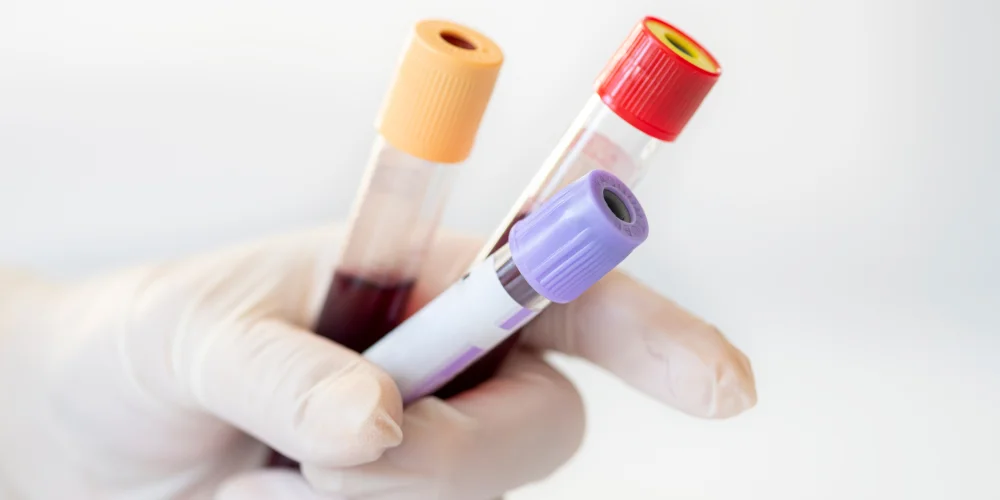VDRL Test
Assessment for Syphilis Infection
The Venereal Disease Research Laboratory test is a critical screening tool used to detect antibodies produced by the body in response to Treponema pallidum, the bacterium responsible for syphilis. This test is essential for diagnosing syphilis, a sexually transmitted infection that can also be transmitted from mother to child during pregnancy. By detecting these antibodies, This test helps healthcare providers identify both active syphilis infections and past exposures. It plays a crucial role in monitoring the effectiveness of treatment and ensuring timely interventions to prevent the spread of the disease, especially from mother to child. Regular screenings and prompt treatment based on test results are key strategies in controlling and managing syphilis outbreaks and reducing its impact on public health.

When is the VDRL Test Prescribed?
The Venereal Disease Research Laboratory test is prescribed in the following situations:
- Syphilis Screening : To detect syphilis in individuals who are sexually active or at risk of exposure.
- Pregnancy Screening : Routine screening during pregnancy to detect syphilis, which can be transmitted to the fetus.
- Symptomatic Evaluation : For individuals showing symptoms of syphilis such as genital sores, skin rash, or swollen lymph nodes.
- Contact Tracing : As part of contact tracing efforts to identify and treat individuals exposed to syphilis.
Preparation for the VDRL Test
No specific preparation is required for the Venereal Disease Research Laboratory test. Patients can eat and drink normally before the test. It’s essential to inform your healthcare provider about any medications or supplements you are taking, as certain medications can affect the test results.
Parameters Considered During VDRL Test
The Venereal Disease Research Laboratory test detects antibodies (specifically IgM and IgG) produced by the body in response to Treponema pallidum infection. The presence of these antibodies indicates exposure to syphilis. Further testing may be required to confirm the diagnosis, especially if the initial result is positive.
Time Required for VDRL Test Report
Results of the Venereal Disease Research Laboratory test are typically available within a few days. This turnaround time allows healthcare providers to promptly diagnose syphilis and initiate appropriate treatment if necessary.
VDRL Test Price
At Chirayu Super Speciality Hospital, the VDRL test price is ₹300. This fee includes the cost of the test kit, laboratory processing, and expert interpretation of results by qualified medical professionals.
Book an Appointment for VDRL Test
What Our Patients Say
Hear from our valued patients about their experiences at Chirayu Super Speciality Hospital and how our care has made a positive impact on their health and well-being.


Confidential handling of my VDRL test results ensured privacy.


Recommended for anyone needing syphilis screening.


Detailed explanation of the VDRL test process by knowledgeable staff.


Efficient appointment scheduling for the VDRL test.


Professional and courteous service during my VDRL screening.


Fast and reliable VDRL test results provided peace of mind.
Frequently Asked Questions
Here, we provide answers to some of the most commonly asked questions to help you better understand our services, policies, and facilities. If you have any additional questions, please do not hesitate to contact us.
A positive result suggests exposure to Treponema pallidum, the bacterium causing syphilis. Further tests are needed to confirm the diagnosis.
No, the VDRL test detects antibodies to Treponema pallidum, which may persist even after successful treatment. Additional tests may be required for confirmation.
Yes, routine VDRL testing during pregnancy helps detect and treat syphilis early to prevent transmission to the fetus.
No specific precautions are necessary. Follow any instructions provided by your healthcare provider based on your results.
Consult a healthcare provider for further evaluation, as additional tests or clinical assessment may be necessary.